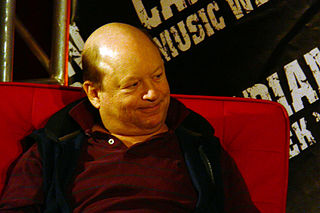A Quote by David Whyte
Sincere regret may be a faculty for paying attention to the future, for sensing a new tide where we missed a previous one, for experiencing timelessness with a grandchild where we neglected a boy of our own.
Related Quotes
The most important thing you can do individually and organizationally is to pay attention to your own creativity. Sports psychologists call this muscle memory or paying attention to your perfect performance. In your own life you can notice when you do something that works right for you and celebrate it. The more you do this, the greater the probability that you will act creatively in future situations.
Unexplained pain may sometimes direct our attention to something unacknowledged, something we are afraid to know or feel. Then it holds us to our integrity, claiming the attention we withhold. The thing which calls our attention may be a repressed experience or some unexpressed and important part of who we are. Whatever we have denied may stop us and dam the creative flow of our lives. Avoiding pain, we may linger in the vicinity of our wounds, sometime for many years, gathering the courage to experience them.
I don't believe in mistakes. Never have. I believe that there are a multitude of paths before us and it's just a matter of which way we walk home. I don't believe in regret. If you regret things about your life, than I'll bet that you're not paying attention. Regret is just imagining that you know what would have happened if you took that job in California or married your high-school sweetheart or just looked one more time before you stepped out into the street ... or didn't. But you don't know; you can't possibly know.






































